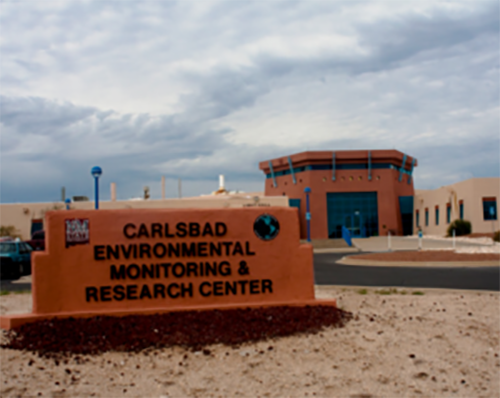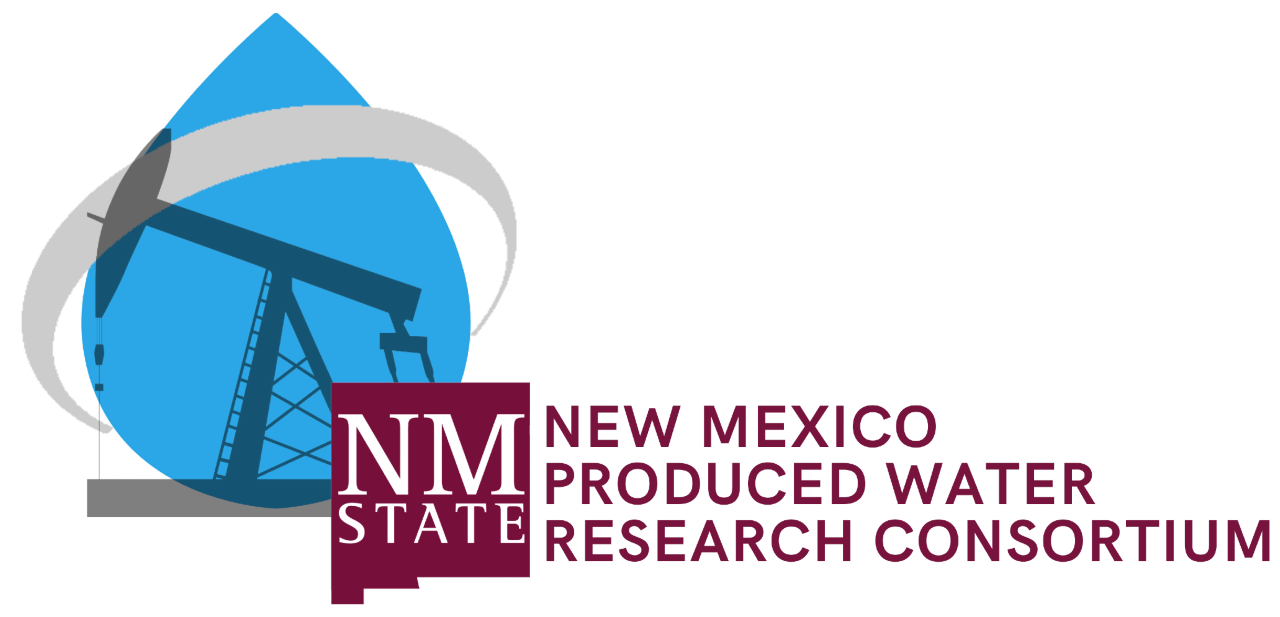Carlsbad Environmental Monitoring & Research Center (CEMRC)

CEMRC is a division of the College of Engineering at New Mexico State University. This 26,000 ft2 radiochemistry facility includes environmental and general radiochemistry laboratories, a special plutonium-uranium lab, an in vivo bioassay facility, mobile laboratories, computing operations and offices. The facility can perform a wide range of environmental and radiochemistry work, characterization, monitoring, and feasibility studies in support of performance assessment, radiological and environmental training and education, subsurface flow and transport experiments, nuclear energy issues, and issues involving Homeland Security particularly those involving radiation dispersal devices (RDDs or dirty bombs). CEMRC's programs include: environmental monitoring of almost any radiological and inorganic constituent; actinide chemistry and repository science particularly concerning the environmental behavior of Pu, Am, U and Np; dirty bomb mitigation research and training particularly for 137Cs and 60Co, head space gas and volatile organic compound (VOC) analyses; in vivo and in vitro bioassay, whole body dosimetry, military small arms range clean-up, evaluation and design of innovative treatment technologies, and soil, water, air and waste characterization.
Funding: Dept. of Energy, Los Alamos National Laboratory (LANL), Sandia National Laboratory (SNL), and Nuclear waste Partnership, LLC (NWP) Contact: Dr. Lambis Papelis
CBBG: Center for Bio-Mediated and Bio-Inspired Geotechnics
The goal of CBBG is to develop and implement into practice nature-inspired sustainable solutions to geotechnical engineering and infrastructure problems in four research thrust areas. The center-wide thrust areas include hazard mitigation, infrastructure construction, resource recovery, and environmental protection and restoration. Funding: National Science Foundation University Partners: Arizona State Univ, Univ. California Davis, Georgia Tech Contact: Prof. Paola Bandini

Engineering Research Center for Re-inventing the Nation's Urban Water Infrastructure (ReNUWIt)
Re-NUWIt is a multi-institution research center whose goal is to change the ways in which we manage urban water. Our vision is of safe, sustainable urban water infrastructures enabled by technological advances in natural and engineered systems and informed by a deeper understanding of institutional frameworks. Funding: National Science Foundation University Partners: Stanford Univ, Univ California Berkeley Contact: Prof. Nirmala Khandan

Tran-SET: Transportation Consortium of South-Central States

The goal of the Tran-SET center is to extend the life of transportation infrastructure, preserving the environment and preserving the existing transportation system. The Center's research thrusts include improving durability of transportation infrastructure, pavement, and bridges. Funding: U.S. Department of Transportation University Partners: Louisiana State Univ, Oklahoma State Univ, Texas A&M Univ, Univ. Texas San Antonio Contact: Prof. Craig Newtson, Dept. Civil Engineering
iCREDITS: Interdisciplinary Center of Research Excellence in Design of Intelligent Technologies for Smart Grids

iCREDITS was established at NMSU in 2014, with a grant awarded from the National Science Foundation. The Center brings together experts in electrical engineering, computer science, mathematics, management, and education. Its goal is to serve as a new epicenter for research and training in smart grids. Funding: National Science Foundation Contact: Dr. Olga Lavrova
National Alliance for Water Innovation (NAWI)
The National Alliance for Water Innovation (NAWI) is a research consortium formed in 2017 to partner with the U.S. Department of Energy to create the Energy-Water Desalination Hub. NAWI envisions an affordable, energy-efficient, and resilient water supply for the U.S. economy through decentralized, small-scale, fit-for-purpose desalination. Funding: Department of Energy Contact: Prof. Pei Xu
New Mexico Produced Water Resource Network
New Mexico State University (NMSU), working collaboratively with the New Mexico Environment Department (NMED), is host to the New Mexico Produced Water Research Consortium (Consortium). The Consortium is a trans-disciplinary public-private partnership comprised of academia, state and federal agencies, national laboratories, and the private sector. The Consortium focuses specifically on conducting scientifically-based research to support and foster regional sustainability. Through this Consortium, New Mexico will continue to lead the country in advancing scientific and technological solutions related to the treatment and reuse of produced water generated by the oil and gas industry.

Southwest Technology Development Institute (SWTDI)
The SWTDI is a non-profit, university-based organization that provides applied research and development services to private and public sector clients. SWTDI was established in 1977 as the New Mexico Solar Energy Institute, and has active research programs in energy and related systems. SWTDI provides training and contract engineering services for systems analysis, hardware development and evaluation, and feasibility studies, and computer modeling, and informational kiosks. SWTDI performs contract engineering for a wide variety of private and public sector clients, including research organizations, utility companies, and local, state, and federal government agencies. Contact: John Wiles
